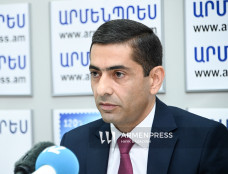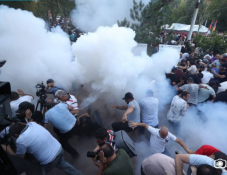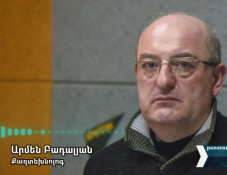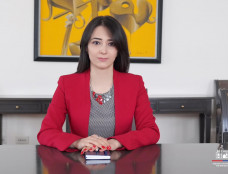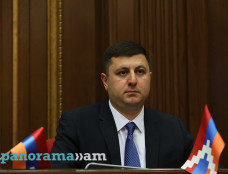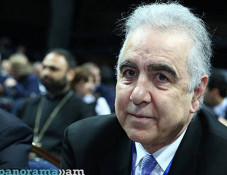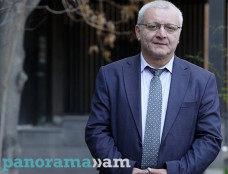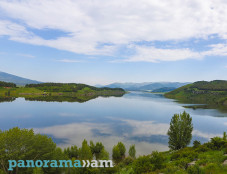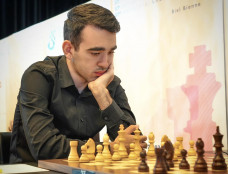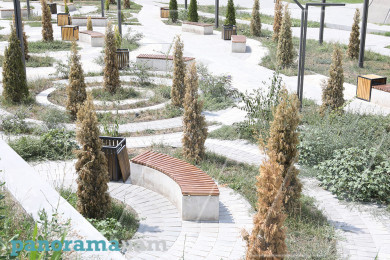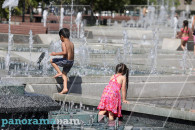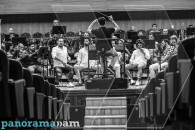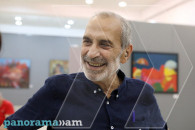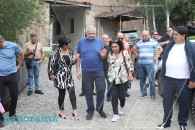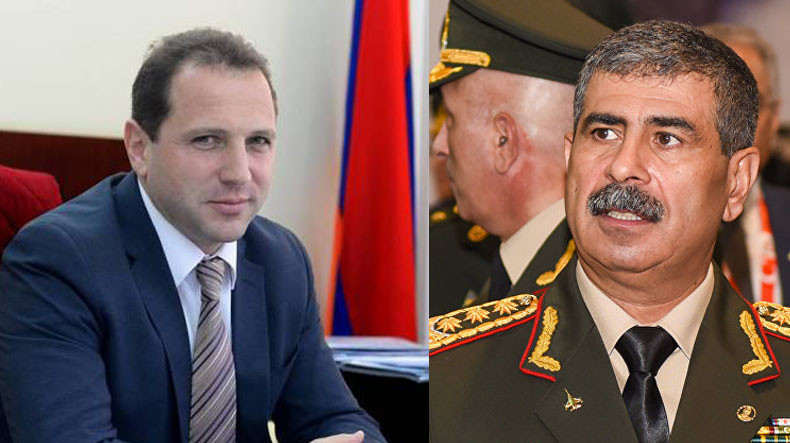
Where and how the Azerbaijani ministers wish to meet with their Armenian counterparts
Defense Minister of Azerbaijan Zakir Hasanov reacted to his Armenian counterpart Davit Tonoyan’s “New war – new territories” statement according to all rules of the genre.
“When I heard that I said that it would be better if the Armenian army would attack us, then I would meet Tonoyan in Yerevan," Hasanov said, boasting of the Azerbaijani army capabilities as he put “to cross the Line of Contact in 18 minutes” and inflict heavy losses to the Armenia army should they use their army’s full strength.
Meanwhile, following the Azerbaijan-EU Cooperation Council meeting in Brussels, Azerbaijani FM Elmar Mammadyarov announced about the upcoming meeting with his Armenian counterpart. As Mammadyarov informed the dates are arranged but will be communicated later.
The situation occurred in Azerbaijan, Armenia, and in Artsakh is quite notable. The difference in approached on the Nagorno Karabakh settlement between the respective ministers can be seemingly ascribed to tactical division of roles. Each minister lobbies for an approach he masters well and is responsible for. The unwritten law tested throughout the history shows generals are prone for military means, including war, while diplomats prefer to solve differences through non-violent and peaceful means. Exceptions are always there yet the general trend is the above.
At a time when we observe certain activeness in the NK peace process, Tonoyan and Hasanov are seen as playing their roles, favorably positioning their sides through demonstration of force and threatening with its use ahead of the talks. The matter, however, lies deeper, and the rhetoric around the Karabakh settlement cannot be simply explained through the prism of these tactical schemes.
The historical experience, ethno-psychological stereotypes, bitter memories from the protracted conflict, the high level of the militarization of the societies and number of other factors have brought the dilemma “war or negotiations” out of the ministerial cabinets and became a toll for expression of the societal preferences in large. Judging from the approaches dominated in the public discourse, we can state that the military option is regretfully backed in the public statements which may lead to a war. When one of the ministers express a position he thus not express the approach of merely the ministry he heads but of a certain circle of the public.
As it has been numerously proved Azerbaijan and its current leadership are responsible for this situation with their maximalism and ungrounded intransigence leave no space for the peace process.
The belligerent rhetoric along with anti-Armenian sentiments have been a defining feature of the Azerbaijan leadership. Threatening with war has been a common practice exercised daily despite the fact it remained a violation of an international principle. Armenia’s response has always been adequate and mild. Armenia has long been in the position of responder, while the things have changed now.
Under these new realities there is no common approach which is the right option - be in the position of a responder, or an initiator of a debate, demander of a response. Those opting for rationalism would perhaps prefer the first option. Eventually, the existing status quo is in the interest of the Armenia side as it wouldn’t want apparently a new escalation and a new war. On the other hand, the experience of the past decades comes to prove we should not only develop capabilities to defend against Azerbaijani aggression but also create deterrence mechanisms.
As the saying goes the truth is perhaps in the middle with consideration on both approaches as voiced by the Armenian and Azerbaijani ministers. The situation, in this context requires the ministers to convey right messages, including during the meetings.
To the sorrow of minister Hasanov, he will have no such an opportunity, as the meeting with Tonoyan in Yerevan in his desired scenario may come only in his dreams. In the meantime, Minister Mammadyarov has the chance to exchange views with his Armenian counterpart - hopefully, in support of the peace process.
Newsfeed
Videos





